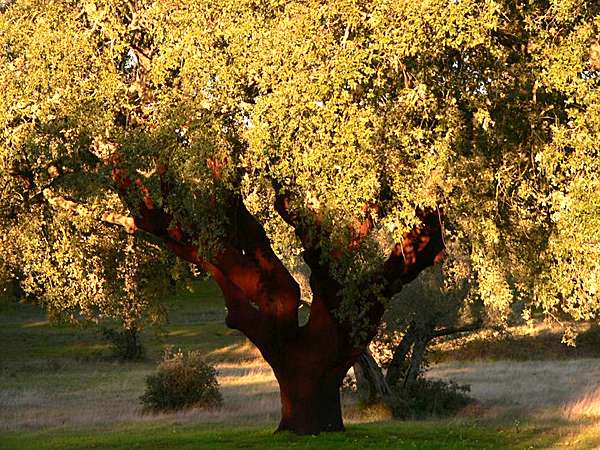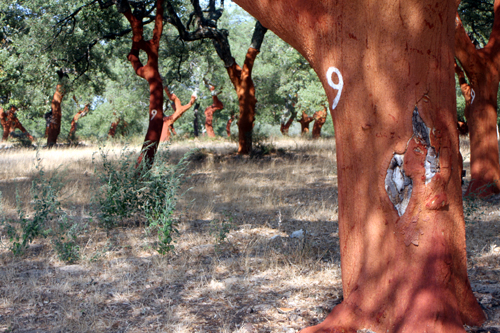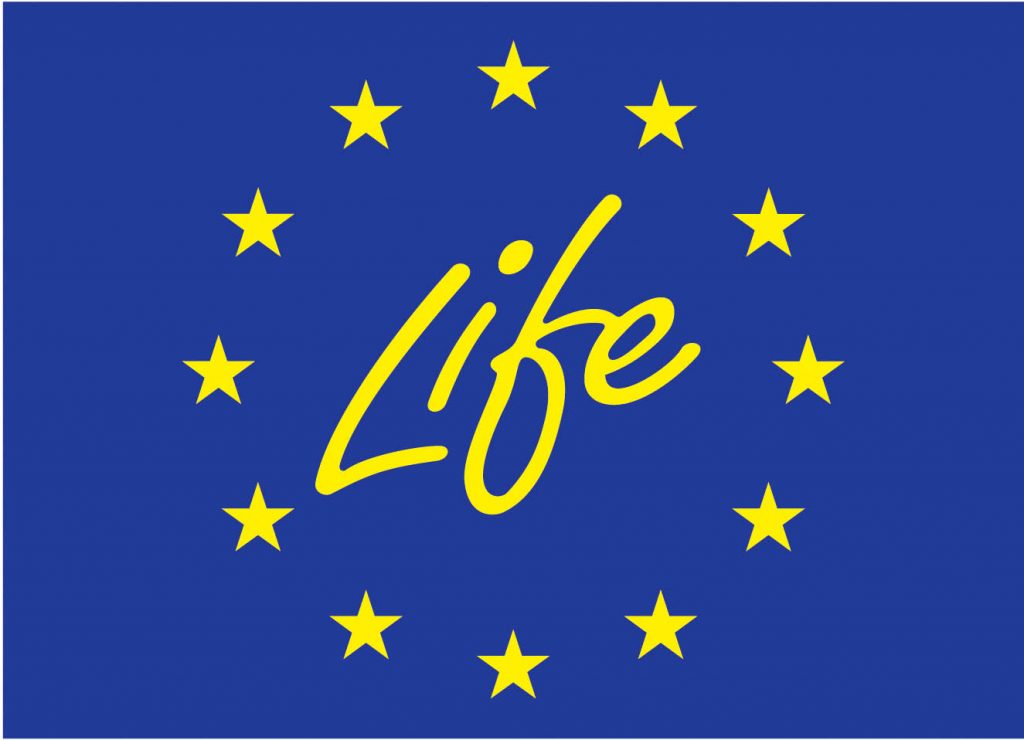 The LIFE project «Adaptation to climate change» Mounted-ADAPT, nominated by the Association for the Defense of the Heritage of Mértola, has just been approved by the European Commission, thus guaranteeing 3,4 million euros for the planned actions.
The LIFE project «Adaptation to climate change» Mounted-ADAPT, nominated by the Association for the Defense of the Heritage of Mértola, has just been approved by the European Commission, thus guaranteeing 3,4 million euros for the planned actions.
O Assembled-ADAPT project aims to introduce innovative technologies to adapt to climate change in the ecosystems of mounted (Portugal) and from pasture (Spain), where current traditional agroforestry practices have become economically unsustainable.
The project will demonstrate sustainable and profitable integrated land use systems that contribute to restoring the multifunctional character of the landscape, as well as increasing its contribution to socio-economic development, environmental services, biodiversity conservation and settlement of carbon.
This is one of three innovative Portuguese LIFE investment projects in favor of the environment and climate action, worth 7,3 million euros, approved by the EC, as announced today.
In total, the European Commission has approved an investment package of 222,7 million euros financed by the EU budget to support Europe's transition to a more sustainable and low-carbon future.
EU funding will encourage additional investments totaling €398,6 million to be applied to 144 new projects in 23 Member States.
Support comes from the LIFE program for the environment and climate action. €323,5 million will be allocated to projects in the fields of environment and rational use of resources, nature and biodiversity, as well as environmental governance and information.
 In addition to the Montado project, promoted by the Association for the Defense of the Heritage of Mértola, two other projects were contemplated in Portugal, with a total funding of 7,3 million euros.
In addition to the Montado project, promoted by the Association for the Defense of the Heritage of Mértola, two other projects were contemplated in Portugal, with a total funding of 7,3 million euros.
The other two projects are part of the LIFE measure "Environment and resource efficiency" and represent €3,9 million.
O LIFE PAYT (Polytechnic Institute of Coimbra) will create an integrated, economical and extremely reproducible PAYT (pay for what is produced) system in five southern EU cities: Lisbon, Condeixa and Aveiro (Portugal), Vrilissia (Greece), and Larnaca (Cyprus) .
This system will encourage families and companies to carry out sorting and recycling, with the aim of reducing the production of waste, increasing the recycling rates of packaging materials, demonstrating the changes in the decision-making process at the local level that contribute implementing the EU waste policy and promoting the replication of the concept in other southern European cities.
The project will use software and hardware to show waste producers the quantities generated and design fair and equitable tariffs in this matter.
Finally, the LIFE Index-Air (Instituto Superior Técnico) intends to create a new instrument for the management of air quality, which will allow local, regional and national policy makers to quantitatively assess the impact of policies on levels of human exposure to particles.
The instrument will be applied in some cities across the EU, where it will be used to assess the contribution of different emission sources to exposure levels and develop control strategies that take into account the anticipated impacts of climate change and atmospheric change in the long term.
The tool will be developed using data from Lisbon, Porto, Athens, Venice and Kuopio.
O Assembled-ADAPT project, applied for and promoted by the Mértola ADP, intends to establish an integrated land use system in 1250 hectares, combining methods such as inter-plantation, removal of diseased trees, reforestation and management systems for the cattle grazing on these lands.
Another objective is to safeguard and improve biodiversity functions, including a 10% increase in the presence of indicator species, such as birds and butterflies, and in plant diversity, in order to create better conditions for the habitat of the Iberian Lynx (lynx pardinus).
The project also intends to contribute to increasing the yield per hectare for the farmer and the number of jobs in the cork oak forest.
In terms of carbon sequestration, the goal is to increase by 1 ton of CO2 equivalent per hectare.
In order to ensure the widespread adoption and replication of climate change adaptation technologies, the project will create a self-sustaining commercial enterprise responsible for collective purchasing, sales, marketing and farmer-to-farmer promotion.
This company will sign at least 10 cooperation agreements with commercial partners for products and eco-services and to promote its products at two fairs.
But the project also intends to have a multiplier effect. Thus, eleven project partners will be trained as promoters, so that each one of them transmits the acquired knowledge to eleven others, thus covering 110 farmers and an estimated area of 10 hectares.
Finally, it will aim to create synergies with national governments, forest, environmental and agricultural authorities, the WWF, and other public and private entities in order to achieve beneficial policies and legislation.
 LIFE projects across the European Union
LIFE projects across the European Union
Environment, Maritime Affairs and Fisheries Commissioner Karmenu Vella said: “I am delighted to see that again this year the LIFE program is once again supporting many innovative projects to tackle common environmental challenges. LIFE-funded projects use relatively small funding and simple ideas to create profitable green businesses that contribute to the transition to a low-carbon and circular economy”.
For his part, Miguel Arias Cañete, Commissioner responsible for Climate Action and Energy, said that “with the entry into force of the Paris Agreement, in a few weeks' time, we must now focus on fulfilling our promises. These projects will create the right conditions to promote innovative solutions and spread best practices in terms of reducing emissions and adapting to climate change in the European Union. In this way, they support the implementation of the Paris Agreement at EU level”.
The 56 LIFE projects «Environment and resource efficiency» will mobilize €142,2 million, of which €71,9 million correspond to the EU contribution. The projects cover initiatives in five different domains: air quality, environment and health, rational use of resources, waste and water resources. The 21 projects that focus on the rational use of resources will alone mobilize €43,0 million and facilitate Europe's transition to a more circular economy.
The 39 LIFE projects «Nature and biodiversity» will support the implementation of the Birds and Habitats Directives and the EU Biodiversity Strategy for 2020. They have a global budget of 158,1 million euros, of which 95,6 million euros are from the EU.
The 15 LIFE projects «Climate governance and information» will increase awareness of environmental issues. They have an overall budget of €23,2 million, of which €13,8 million is from the EU.
The 16 LIFE projects «Adaptation to climate change» will mobilize €32,9 million, of which €19,4 million from the EU. These grants are awarded to projects in five thematic areas: Agriculture/forestry/tourism, adaptation in mountainous/island areas, adaptation/urban planning, vulnerability assessments/adaptation strategies, and water resources.
The 12 LIFE projects «Mitigation of climate change» have an overall budget of €35,3 million, of which €18,0 million is from the EU. These grants are awarded to best practice projects, pilot projects and demonstration projects in three thematic areas: energy, industry and land use/agriculture/forestry.
The 6 LIFE projects «Climate governance and information» focus on improving governance and raising awareness of climate change. They have an overall budget of €6,9 million, of which €4,1 million is from the EU.
The LIFE program is the EU's funding instrument for environment and climate action. It was launched in 1992 and has already allowed the co-financing of more than 4 projects across the EU and in third countries, mobilizing €300 billion and contributing a total of €8,8 billion to environmental and environmental protection. climate.
At any given time, there are around 1 100 LIFE projects running simultaneously.
The LIFE programme, which comprises an 'Environment' and a 'Climate Action' subprogramme, has a budget of EUR 2014 billion at current prices for the period 2020-3,4.


















Comments